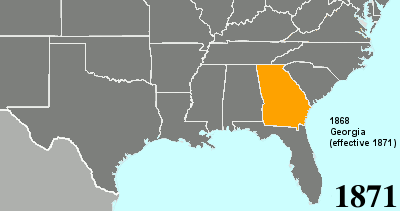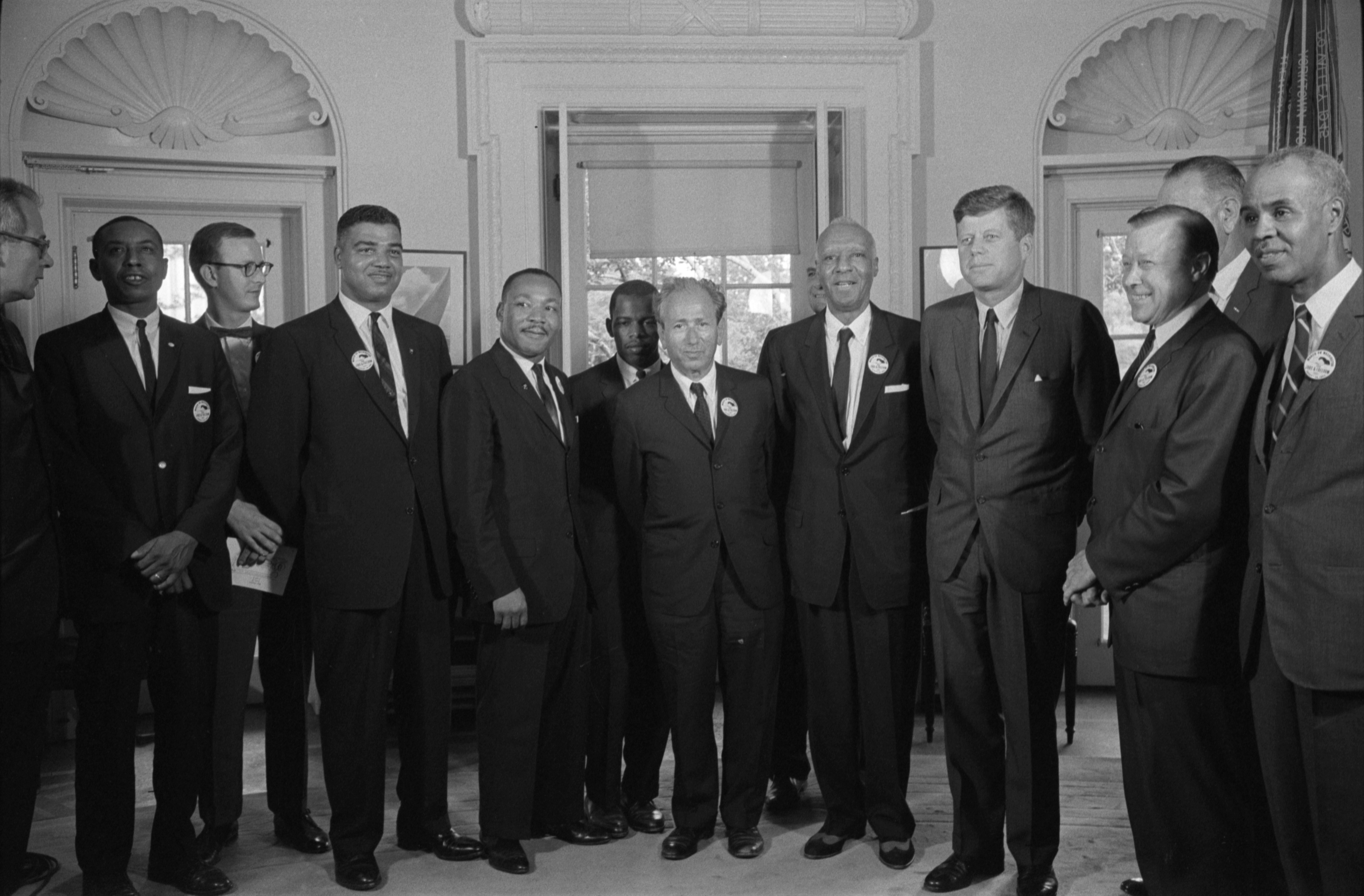|
Paul C. Jones
Paul Caruthers Jones (March 12, 1901 – February 10, 1981) was an American politician who served as a U.S. Representative from Missouri. Biography Born in Kennett, Missouri, Jones attended the Kennett public schools. He was graduated from the University of Missouri with a B.J. degree in 1923. He served as a member of the Kennett city council from 1931 to 1933 and as mayor of Kennett from 1933 to 1935. He served as a member and president of the Kennett board of education from 1934 to 1946 and in the state House of Representatives from 1935 to 1937. He then served as a member of the state Senate from 1937 to 1944. He was co-publisher of the Dunklin Democrat, a newspaper in Kennett, from 1923 until February 1953. He also served as general manager of KBOA (AM) and KBOA-FM, Kennett's first radio station, which he helped to found, from 1947 until October 1966. From August 1945 to May 1948, he served as chairman of the Missouri State Highway Commission. He was appointed by Governor ... [...More Info...] [...Related Items...] OR: [Wikipedia] [Google] [Baidu] |
Missouri
Missouri (''see #Etymology and pronunciation, pronunciation'') is a U.S. state, state in the Midwestern United States, Midwestern region of the United States. Ranking List of U.S. states and territories by area, 21st in land area, it borders Iowa to the north, Illinois, Kentucky and Tennessee to the east, Arkansas to the south and Oklahoma, Kansas, and Nebraska to the west. In the south are the Ozarks, a forested highland, providing timber, minerals, and recreation. At 1.5 billion years old, the St. Francois Mountains are among the oldest in the world. The Missouri River, after which the state is named, flows through the center and into the Mississippi River, which makes up the eastern border. With over six million residents, it is the List of U.S. states and territories by population, 19th-most populous state of the country. The largest urban areas are St. Louis, Kansas City, Missouri, Kansas City, Springfield, Missouri, Springfield, and Columbia, Missouri, Columbia. The Cap ... [...More Info...] [...Related Items...] OR: [Wikipedia] [Google] [Baidu] |
80th United States Congress
The 80th United States Congress was a meeting of the legislative branch of the Federal government of the United States, United States federal government, composed of the United States Senate and the United States House of Representatives. It met in Washington, D.C. from January 3, 1947, to January 3, 1949, during the third and fourth years of 33rd President Presidency of Harry S. Truman, Harry S. Truman's administration (1945–1952). This congressional term featured the most recent special Senate sessions. The apportionment of seats in this United States House of Representatives, House of Representatives was based on the 1940 United States census. The Republican Party (United States), Republicans won the majority in both chambers, marking the first time since the 71st United States Congress, 71st Congress of 1929–1931, that they held full control of Congress, and the first time since the 72nd United States Congress, 72nd Congress of 1931–1933, that they held control of eithe ... [...More Info...] [...Related Items...] OR: [Wikipedia] [Google] [Baidu] |
1901 Births
December 13 of this year is the beginning of signed 32-bit computing, 32-bit Unix time, and is scheduled to end in Year 2038 problem, January 19, 2038. Summary Political and military 1901 started with the Federation of Australia, unification of multiple Crown colony, British colonies in Australia on January 1 to form the Australia, Commonwealth of Australia after a 1898–1900 Australian constitutional referendums, referendum in 1900, Subsequently, the 1901 Australian federal election, 1901 Australian election would see the first Prime Minister of Australia, Australian prime minister, Edmund Barton. On the same day, Nigeria became a Colonial Nigeria, British protectorate. Following this, the Victorian era, Victorian Era would come to a end after Queen Victoria died on January 22 after a reign of 63 years and 216 days, which was List of monarchs in Britain by length of reign, longer than those of any of her predecessors, Her son, Edward VII, succeeded her to the throne. ... [...More Info...] [...Related Items...] OR: [Wikipedia] [Google] [Baidu] |
Voting Rights Act Of 1965
The Voting Rights Act of 1965 is a landmark piece of federal legislation in the United States that prohibits racial discrimination in voting. It was signed into law by President Lyndon B. Johnson during the height of the civil rights movement on August 6, 1965, and Congress later amended the Act five times to expand its protections. Designed to enforce the voting rights protected by the Fourteenth and Fifteenth Amendments to the United States Constitution, the Act sought to secure the right to vote for racial minorities throughout the country, especially in the South. According to the U.S. Department of Justice, the Act is considered to be the most effective piece of federal civil rights legislation ever enacted in the country. The National Archives and Records Administration stated: "The Voting Rights Act of 1965 was the most significant statutory change in the relationship between the federal and state governments in the area of voting since the Reconstruction peri ... [...More Info...] [...Related Items...] OR: [Wikipedia] [Google] [Baidu] |
Twenty-fourth Amendment To The United States Constitution
The Twenty-fourth Amendment (Amendment XXIV) of the United States Constitution prohibits both US Congress, Congress and the US states, states from requiring the payment of a Poll taxes in the United States, poll tax or any other tax to vote in US federal election, federal elections. The amendment was proposed by Congress to the states on August 27, 1962, and was ratified by the states on January 23, 1964. Southern United States, Southern states of the former Confederate States of America adopted Poll taxes in the United States, poll taxes both in their state laws and in their state constitutions throughout the late-19th and early-20th centuries. This became more widespread as the Democratic Party regained control of most levels of government in the South in the decades after Reconstruction era of the United States, Reconstruction. The purpose of poll taxes was to prevent African Americans and poor whites from voting. Use of the poll tax by states was held to be constitutional b ... [...More Info...] [...Related Items...] OR: [Wikipedia] [Google] [Baidu] |
Civil Rights Act Of 1968
The Civil Rights Act of 1968 () is a Lists of landmark court decisions, landmark law in the United States signed into law by President of the United States, United States President Lyndon B. Johnson during the King assassination riots. Titles II through VII comprise the Indian Civil Rights Act, which applies to the Native Americans in the United States, Native American tribes of the United States and makes many but not all of the guarantees of the United States Bill of Rights, U.S. Bill of Rights applicable within the tribes. (That Act appears today in Title 25, sections 1301 to 1303 of the United States Code). Titles VIII and IX are commonly known as the Fair Housing Act, which was meant as a follow-up to the Civil Rights Act of 1964. (This is different legislation than the Housing and Urban Development Act of 1968, which expanded housing funding programs.) While the Civil Rights Act of 1866 prohibited discrimination in housing, there were no federal enforcement provisions. T ... [...More Info...] [...Related Items...] OR: [Wikipedia] [Google] [Baidu] |
Civil Rights Act Of 1964
The Civil Rights Act of 1964 () is a landmark civil rights and United States labor law, labor law in the United States that outlaws discrimination based on Race (human categorization), race, Person of color, color, religion, sex, and national origin. It prohibits unequal application of voter registration requirements, racial segregation in schools and public accommodations, and employment discrimination. The act "remains one of the most significant legislative achievements in American history". Initially, powers given to enforce the act were weak, but these were supplemented during later years. Congress asserted its authority to legislate under several different parts of the United States Constitution, principally its Enumerated powers (United States), enumerated power to regulate interstate commerce under the Commerce Clause of Article One of the United States Constitution#Section 8: Powers of Congress, Article I, Section 8, its duty to guarantee all citizens Equal Protectio ... [...More Info...] [...Related Items...] OR: [Wikipedia] [Google] [Baidu] |
Civil Rights Act Of 1960
The Civil Rights Act of 1960 () is a United States federal law that established federal inspection of local voter registration polls and introduced penalties for anyone who obstructed someone's attempt to register to vote. It dealt primarily with discriminatory laws and practices in the segregated South, by which African-Americans and Tejanos had been effectively disenfranchised since the late 19th and start of the 20th century. This was the fifth Civil Rights Act to be enacted in United States history. Over an 85-year period, it was preceded only by the Civil Rights Act of 1957, whose shortcomings largely influenced its creation. This law served to more effectively enforce what was set forth in the 1957 act through eliminating certain loopholes in it, and to establish additional provisions. Aside from addressing voting rights, the Civil Rights Act of 1960 also imposed criminal penalties for obstruction of court orders to limit resistance to the Supreme Court's school desegrega ... [...More Info...] [...Related Items...] OR: [Wikipedia] [Google] [Baidu] |
Civil Rights Act Of 1957
The Civil Rights Act of 1957 was the first federal civil rights law passed by the United States Congress since the Civil Rights Act of 1875. The bill was passed by the 85th United States Congress and signed into law by President Dwight D. Eisenhower on September 9, 1957. The Supreme Court's 1954 ruling in the case of '' Brown v. Board of Education'' brought the issue of school desegregation to the fore of public attention, as Southern Democratic leaders began a campaign of " massive resistance" against desegregation. In the midst of this campaign, President Eisenhower proposed the bill to provide federal protection for African American voting rights; most African Americans in the Southern United States had been disenfranchised by state and local laws. Though the bill passed Congress, opponents of the act were able, in the Senate, to remove stringent voting protection clauses via the Anderson–Aiken amendment and the O'Mahoney jury trial amendment, significantly watering ... [...More Info...] [...Related Items...] OR: [Wikipedia] [Google] [Baidu] |
United States Government Publishing Office
The United States Government Publishing Office (USGPO or GPO), formerly the United States Government Printing Office, is an agency of the legislative branch of the United States federal government. The office produces and distributes information products and services for all three branches of the Federal Government, including U.S. passports for the Department of State as well as the official publications of the Supreme Court, the Congress, the Executive Office of the President, executive departments, and independent agencies. An act of Congress changed the office's name to its current form in 2014. History Establishment of the Government Printing Office The Government Printing Office was created by congressional joint resolution () on June 23, 1860. It began operations March 4, 1861, with 350 employees and reached a peak employment of 8,500 in 1972. The agency began transformation to computer technology in the 1980s; along with the gradual replacement of paper with el ... [...More Info...] [...Related Items...] OR: [Wikipedia] [Google] [Baidu] |
Congressional Record
The ''Congressional Record'' is the official record of the proceedings and debates of the United States Congress, published by the United States Government Publishing Office and issued when Congress is in session. The Congressional Record Index is updated daily online and published monthly. At the end of a session of Congress, the daily editions are compiled in bound volumes constituting the permanent edition. Chapter 9 of Title 44 of the United States Code authorizes publication of the ''Congressional Record''. The ''Congressional Record'' consists of four sections: the United States House of Representatives, House section, the United States Senate, Senate section, the Extensions of Remarks, and, since the 1940s, the Daily Digest. At the back of each daily issue is the Daily Digest, which summarizes the day's floor and committee activities and serves as a table of contents for each issue. The House and Senate sections contain proceedings for the separate chambers of Congress. ... [...More Info...] [...Related Items...] OR: [Wikipedia] [Google] [Baidu] |
Southern Manifesto
The Declaration of Constitutional Principles (known informally as the Southern Manifesto) was a document written in February and March 1956, during the 84th United States Congress, in opposition to racial integration of public places. The manifesto was signed by 19 US Senators and 82 Representatives from the Southern United States. The signatories included the entire congressional delegations from Alabama, Arkansas, Georgia, Louisiana, Mississippi, South Carolina, and Virginia, most of the members from Florida and North Carolina, and several members from Tennessee and Texas. All of them were from the former Confederate states. 97 were Democrats; 4 were Republicans. The Manifesto was drafted to support reversing the landmark Supreme Court 1954 ruling '' Brown v. Board of Education'', which determined that segregation of public schools was unconstitutional. School segregation laws were some of the most enduring and best-known of the Jim Crow laws that characterized the South ... [...More Info...] [...Related Items...] OR: [Wikipedia] [Google] [Baidu] |






